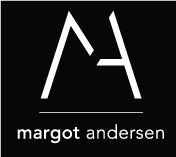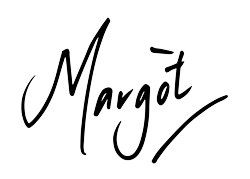“Your energy is a valuable resource, distribute it wisely.” – Jay Samit
None of us are surprised to hear that when your energy levels are low, your work suffers. In fact most things suffer. Motivation wanes, productivity falls and efficiencies slow. Equally, failing to channel your energies in the right direction can also be just as problematic – distractions and frustrations abound with lots of energy expended for very little result.
As a consequence we often find ourselves facing mounting pressures and increasing demands – to which many of us typically respond by simply working longer hours. If I just do more, work harder, things will improve and I will get ‘through it’. When we don’t just simply ‘get through it’ we start to question our capability, purpose and impact. And, so begins a vicious cycle that if we aren’t careful can have severe ramifications for our health, career and relationships.
The problem with simply working longer hours is that you can still run out of them because there are only a fixed number in each day, week or year. Unlike time, energy though is a renewable resource that can be topped up when we know how. Knowing what depletes our energy and what refuels it is the key to developing healthy, sustainable work habits and supporting ongoing success.
As we race towards the end of the year, I would encourage you to think about how you manage and distribute your energy reserves. In doing so, you will not only enhance your opportunity to engage in meaningful work, you will maximise your efficiency.
Take a moment to consider where you sit on the above graph. Regardless of which quadrant you sit in, you need to understand why you are in that position.
If you are fortunate enough to sit in the ‘Fulfilled’ quadrant, you need to be clear about why you feel that way, what has helped you get there and what you need in order to stay there.
Conversely if you find yourself in one of the other three quadrants you need to determine why and what actionable steps you can immediately take to help you maximise both energy and productivity. Taking the time to critically reflect on the position you find yourself in opens up the pathway to higher level learning, deeper engagement and provides the platform for informed and confident decision making. It is also a critical exercise if you are to create a career and business you love.
Start by asking yourself these five simple questions:
What do I do and why? Nothing is more empowering than feeling aligned to your core purpose, talents and capabilities. The reality is that when you are inspired by what you do you are more actively engaged in your work and your business and you produce better results. Your purpose becomes your generator.
What daily habits fuel my energy? Of equal importance, is the ability to recognise those everyday habits that generate or rob us of our energy. Am I looking after myself physically, mentally and emotionally? Have I created healthy sustainable habits that will last beyond January and support optimal health in all areas of my life?
Am I bored or stuck in a rut? There is no doubt that routine kills energy. We all have things that we need to do but understanding how we can shake things up is important. Pushing the boundaries of our comfort zone more often than not also brings new knowledge, new networks, new opportunities and lessons that light a spark and fuels a passion for what we do.
Do I understand how my role and my skills add value to the business? We all like to know that our contribution is valued and how it impacts the overall success of our team and business. Initiating a conversation to understand what your value is or ways to increase it demonstrates a strong sense of accountability and desire to play an active role in both your own direction and that of the business you work for.
What relationships do I need to dedicate time and energy to? Too often one of our major blockers or causes of angst is between our key stakeholders and / or team members. Taking the time to understand individual work and communication styles is a critical part of not only developing our influencing and leadership skills but also to ensuring timely and effective outcomes.
As leaders, we face never ending pressures to do ‘more with less’ – less resources, less money and less people. Even with these ongoing pressures, most of us recognise the need to invest in our own and our employee’s knowledge and skillsets. However we also need to consider how we build and sustain capacity for ourselves and our people. Healthy behaviours and productive practices start with us.
As always I would love to hear your thoughts.



